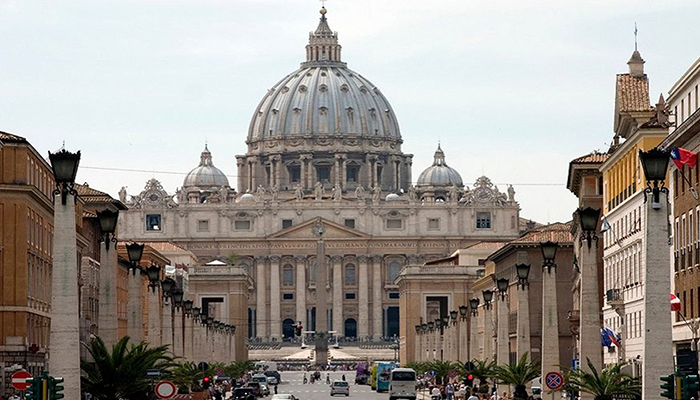Historians get access to Pope XII archives whose Holocaust silence baffles many
March 02, 2020

VATICAN CITY: Historians will start understanding more about Pius XII silence during the Nazi extermination of Jews in the Holocaust as the Vatican allowed them access to the the archives of the world's most contentious pope on Monday.
More than 200 researchers have applied for permission to settle in one of the small studies of the Vatican Apostolic Archives to begin poring over millions of letters and documents the Vatican had kept under lock and key.
The historic moment was preceded by decades of controversy and debate about why the pontiff, who headed the Catholic Church from 1939 until his death in 1958, never spoke out about the slaughter of six millions Jews in Nazi concentration camps across Europe.
Also read: Deaf survivors of clergy sexual abuse protest in Vatican
"The Church is not afraid of history," Pope Francis declared when he chose to open one the Vatican´s most painful moments up for world scrutiny a year ago.
"For millions of people, Catholic and Jewish, these archives are of enormous humanitarian interest," Suzanne Brown-Fleming, international programmes director at the US Holocaust Memorial Museum in Washington, told AFP.
Years of work
The Vatican first published the essentials covering the Holocaust four decades ago, an 11-volume work compiled by four Jesuits priests.
But some crucial pieces are still missing, such as the pope's replies to notes and letters — including those about the Nazi horrors.
The unsealed archives additionally cover a post-World War II era in which writers were censored and some priests hounded for suspected communist sympathies.
German researcher Sascha Hinkel was one of those to have gained access to the trove through the summer months.
"This is a great opportunity," said Hinkel, who is one of the researchers assisting the religious history scholar Hubert Wolf, an expert on Pius XII and the Nazis.
Also read: Pope Francis makes history with Muslim dialogue in UAE
Hinkel thinks it will take researchers about five years to answer the main questions, although the entire mountain of documents available for the first time "will occupy historians for at least 20 years".
The Vatican's focus on transparency was symbolised a few days ago by the presence of reporters´ cameras in the bunker of the central archive — officially known as the "secret archive" until as recently as last year.
The 85-kilometre web of dusty shelves includes a section dedicated to Pius XII, protected behind locked metal gates.
On this occasion, Archbishop Sargio Pagano, the central archives' manager, took out some tattered leaflets.
They were drawings and letters from German children thanking the pope for sending them first communion gifts in 1948.
'Product of his time'
Kept confined to the Vatican by the Nazis and then Italian Fascists, Pius XII was a German-speaking Italian aristocrat who witnessed Hitler's rise while posted as the Holy See's ambassador in Germany for 12 years.
The archives will give historians a chance to better understand Pius XII's reticence, which some view as unforgivable.
Others note that the Church still saved around 4,000 Jews from certain death by hiding them in its Roman institutions — and that he had to stay neutral to better shield Catholics from the unfolding devastation.
Will these documents finally settle the debate?
Also read: Gotcha! Girl swipes off Pope’s hat on first meeting
Historians interviewed by AFP are less than certain.
Pius XII "never raised his voice and I doubt that these documents will contradict this," said Italian historian Anna Foa, characterising his style as "very diplomatic and traditional".
"During the war, he thought his duty was to save lives but not to condemn ideologies," said Foa.
"Pius XII was a product of his time. He was not particularly anti-Jewish, but he refused to disavow the anti-Jewish history of the Church."
While opening the archives, the Vatican also appears to be shutting down talk of Pius XII's beatification — a first step toward canonisation backed by the German-born Pope Benedict XVI in 2009.
The idea triggered an outcry from Jewish groups.











